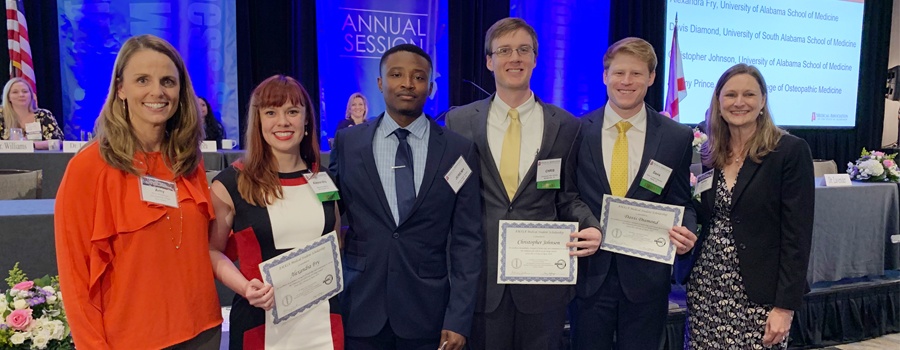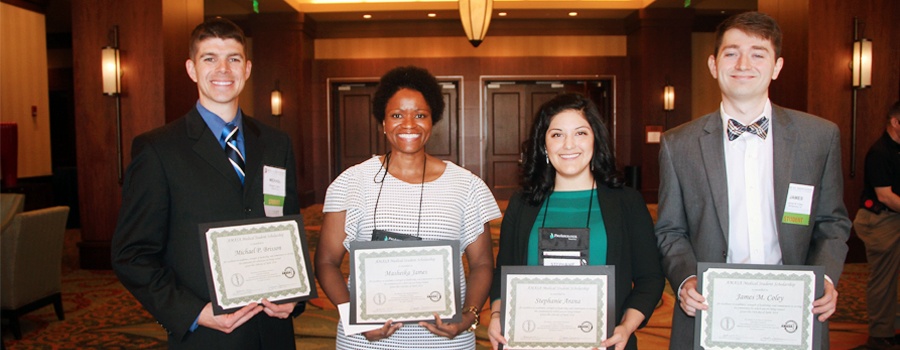Tag: scholarship
-

Four Medical Students Receive Scholarships during 2019 Annual Meeting
BIRMINGHAM – This year four medical students received scholarship awards totaling up to $8,000 during the 2019 Annual Meeting of the Medical Foundation of Alabama. The AMASA Medical Student Scholarship Fund was established in 2012 by the Alliance to the Medical Association of the State of Alabama in partnership with the Medical Foundation of Alabama…
-

Underwood Minority Scholarship Award Announced
MONTGOMERY — The Underwood Minority Scholarship Award was officially announced during the Association’s 2019 Annual Meeting and Business Session. Named for long-time Montgomery physician and the Medical Association’s 152nd President Jefferson Underwood III, M.D., the Underwood Minority Scholarship Award is for African-American individuals underrepresented in Alabama’s medical schools and the state’s physician workforce. Dr. Underwood…
-

AMASA Scholarships Help Students Achieve a Dream
Pictured from left in the photo are Michael Brisson, Masheika James, Stephanie Arana and James Coley. The winners of the 2018 AMASA Medical Student Scholarships have been announced. The AMASA Medical Student Scholarship Fund was established in 2012 by the Alliance to the Medical Association of the State of Alabama in partnership with the Medical…